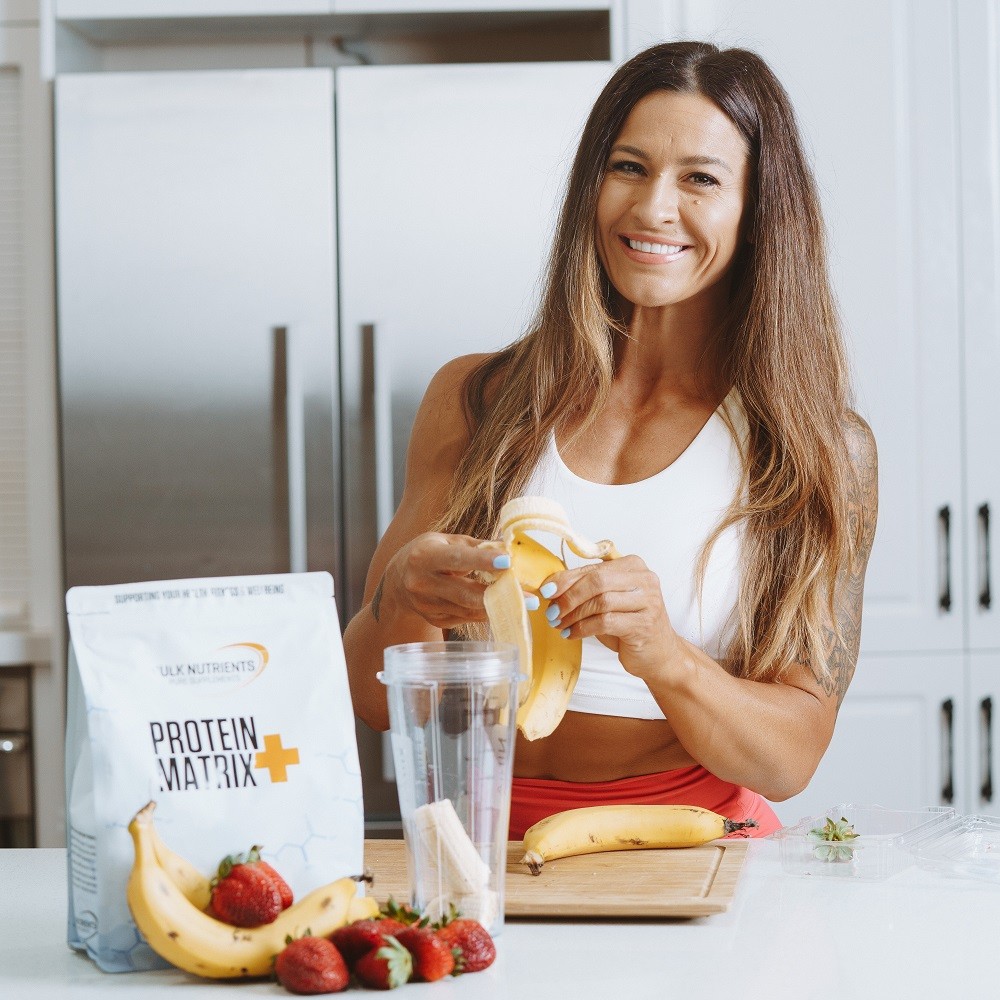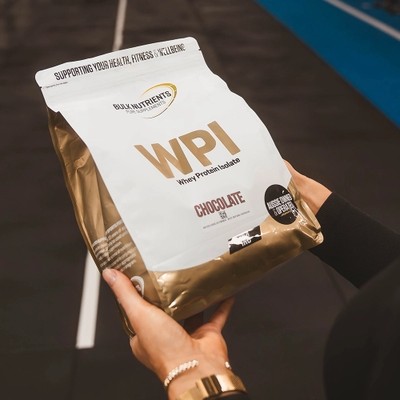Should We Be Worried About Dietary Inflammation?

What is inflammation?
Inflammation is a reaction from our immune system which helps to protect us when we’re faced with hazards.
For example, if we get wounded or infected, inflammation occurs because our immune system is working to heal us.
And we get rid of the inflammation by reducing the threat.
For an acute threat like an infection, we can generally get rid of it pretty quickly.
Another example is gluten for celiacs: they consume gluten and cause damage (and thus inflammation via an immune response) to their small intestines. This results in pain and malabsorption of nutrients.
So, they must stop eating gluten to remove the inflammation. Simple.
But things get more complicated with chronic inflammation; this occurs when the inflammation fails to repair the triggering agent.
For example, the body keeps trying to fix something that can’t be altered and then chronic inflammation arises.
This happens when we form diseases our body tries to fight but can’t.
An example is dyslipidaemias – diseases characterised by abnormal levels of lipids (fat) in the blood. These diseases can occur from a bad diet, tobacco exposure, or genetic factors.
Other risk factors for inflammation-related chronic diseases are:
- Hypertension
- Diabetes
- Excessive food intake
- Previous infections (influenza, oral pathogens)
- Underlying autoimmune diseases such as lupus or rheumatoid arthritis, pollution, and genetic abnormalities
Also, being overweight might place us into an over-inflammatory position; fat tissue has inflammatory cells which might be more active in people with more of it.
And given we’ve just established that eating lots of food and having higher body fat can create these issues, it’s no surprise that this can bring about chronic diseases such as blood pressure diabetes, high cholesterol, and heart disease.
So, now you know what inflammation is, what is acute and chronic, and how they both come about.
What we need to look at now is: how does this affect you?
Should I be worried about inflammation?
There are many benefits to our gym lifestyle: increased confidence, a better body, and the most critical: better health.
So, I’m sure you can see where this is going: with a healthy body free of any of these aforementioned diseases, inflammation really isn’t going to bother us at all.
If we’re exercising regularly, are not overweight, and eat a balanced diet of the foods we like but focus on 80 per cent whole foods, do we really need to be concerned about inflammation?
The answer is not really.
I remain undeterred that so much of our health comes down to the above. And if we don’t smoke and drink excessively then inflammation isn’t something we need to think about regularly.
But with so many social media platforms kicking off, and many uneducated people broadcasting on them, we’re getting unhelpful messages about how we should worry about inflammation and the foods that cause it.
But the average healthy person doesn’t need to be alarmed at all.
The issue is that some people end up avoiding these “inflammation-causing” foods, thus creating an unhealthy relationship with eating which can actually lead to binge eating.
It all becomes a bit counterproductive.

Which foods cause inflammation?
Whilst we’ve established that foods causing inflammation shouldn’t bother us if we’re healthy, it’s worth taking a look at these foods regardless.
Research finds that those following a Mediterranean diet are more likely to have lower levels of inflammation.
But this is still not totally understood and scientists say more research is needed to see how food influences all the facets of inflammation.
If you’re not aware, the Mediterranean diet consists of:
- High intakes of vegetables
- Legumes
- Fruits
- Nuts
- Grains
- Fish
- Seafood
- Extra virgin olive oil
- And a moderate intake of red wine (although this is becoming more controversial in the scientific literature as time goes on, it’s still part of this diet).
Whilst the foods that do promote inflammation are those high in:
- Refined starches (white flour, white bread, white rice, pastries, sodas, snacks, pasta, sweets, breakfast cereals and added sugars).
- Saturated and trans-fats, and low in omega-3 fatty acids.
Furthermore, women in the Nurses' Health Study, for example, eating a diet (high in red and processed meats, sweets, desserts, French fries, and refined grains) had higher markers of inflammation than those consuming a higher intake of fruit, vegetables, legumes, fish, poultry, and whole grains.
Predictable, yes.
But nothing to be concerned about eating if you’re in a good position of health in the first place.

The bottom line on dietary inflammation
We don’t need to be worried about inflammation if we’re healthy in the first place. Acute inflammation is simply an infection our body can get rid of. But chronic inflammation arises (we think, with more research required) from having a disease resulting from poor lifestyle choices (obesity, tobacco) which our body is trying to heal but can’t.
If we focus on exercising regularly, following a diet with 80% whole foods and with adequate micronutrients and don’t allow ourselves to become overweight, foods that create inflammation and inflammation itself aren’t something we need to be overly concerned about.

Dayne Hudson
Like many, Dayne was once desperate to lose weight and get into shape. But everyone he asked, everything he read, lead to the same place... nowhere.
His journey started there - researching science journals and completing a Sports Nutrition Specialist qualification so he could make weight loss easier.
References:
- Pahwa R, Goyal A, Jialal I. Chronic Inflammation. 2021 Sep 28. In: StatPearls [Internet]. Treasure Island (FL): StatPearls Publishing; 2022 Jan–. PMID: 29630225.
- Lebwohl B, Ludvigsson JF, Green PH. Celiac disease and non-celiac gluten sensitivity. BMJ. 2015 Oct 5;351:h4347. doi: 10.1136/bmj.h4347. PMID: 26438584; PMCID: PMC4596973.
- Tsoupras A, Lordan R, Zabetakis I. Inflammation, not Cholesterol, Is a Cause of Chronic Disease. Nutrients. 2018;10(5):604. Published 2018 May 12. doi:10.3390/nu10050604
- Pirillo A, Casula M, Olmastroni E, Norata GD, Catapano AL. Global epidemiology of dyslipidaemias. Nat Rev Cardiol. 2021 Oct;18(10):689-700. doi: 10.1038/s41569-021-00541-4. Epub 2021 Apr 8. PMID: 33833450.
- Pappan N, Rehman A. Dyslipidemia. [Updated 2021 Jul 15]. In: StatPearls [Internet]. Treasure Island (FL): StatPearls Publishing; 2022 Jan-.
- Legein B., Temmerman L., Biessen E.A.L., Lutgens E. Inflammation and immune system interactions in atherosclerosis. Cellular Mol. Life Sci. 2013;70:3847–3869. doi: 10.1007/s00018-013-1289-1.
- Reilly SM, Saltiel AR. Adapting to obesity with adipose tissue inflammation. Nat Rev Endocrinol. 2017 Nov;13(11):633-643. doi: 10.1038/nrendo.2017.90. Epub 2017 Aug 11. PMID: 28799554.
- De Lorenzo A, Gratteri S, Gualtieri P, Cammarano A, Bertucci P, Di Renzo L. Why primary obesity is a disease? J Transl Med. 2019 May 22;17(1):169. doi: 10.1186/s12967-019-1919-y. PMID: 31118060; PMCID: PMC6530037.
- Moore CA, Bokor BR. Anorexia Nervosa. [Updated 2022 May 4]. In: StatPearls [Internet]. Treasure Island (FL): StatPearls Publishing; 2022 Jan-.
- Tuttolomondo A, Simonetta I, Daidone M, Mogavero A, Ortello A, Pinto A. Metabolic and Vascular Effect of the Mediterranean Diet. Int J Mol Sci. 2019 Sep 23;20(19):4716. doi: 10.3390/ijms20194716. PMID: 31547615; PMCID: PMC6801699.
- Schwingshackl L, Morze J, Hoffmann G. Mediterranean diet and health status: Active ingredients and pharmacological mechanisms. Br J Pharmacol. 2020 Mar;177(6):1241-1257. doi: 10.1111/bph.14778. Epub 2019 Jul 25. PMID: 31243760; PMCID: PMC7056467.
- Lopez-Garcia E, Schulze MB, Fung TT, Meigs JB, Rifai N, Manson JE, Hu FB. Major dietary patterns are related to plasma concentrations of markers of inflammation and endothelial dysfunction. Am J Clin Nutr. 2004;80:1029–35.
Related Blogs

Alcohol - A good time or your Achilles’ heel?
Posted by Max Cuneo
Estimated reading time: 13 minutes

How to Work Around Dairy & Lactose Intolerances
Posted by Nick Telesca
Estimated reading time: 7 minutes

Have You Considered Nutrition May Improve Inflammation?
Posted by Max Cuneo
Estimated reading time: 9 minutes




























